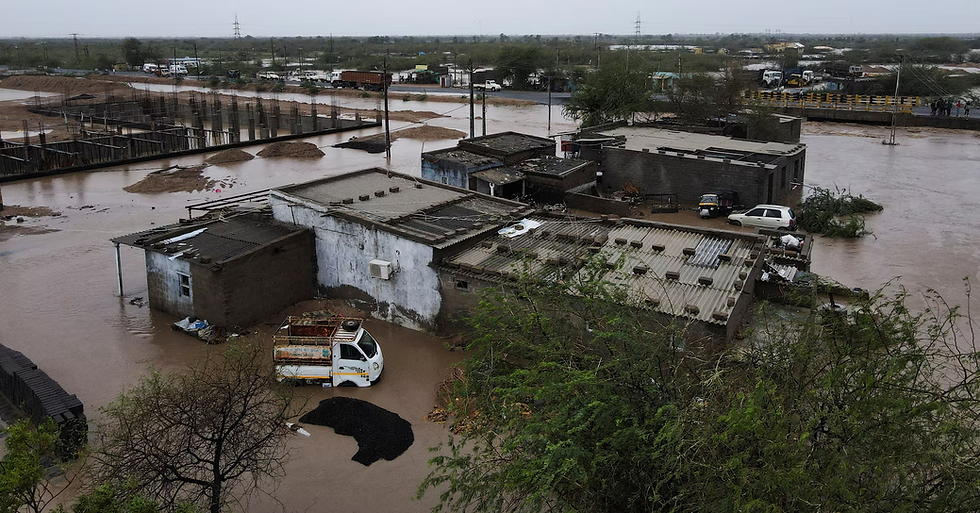The Warmest Year Ever and the Effects of Trump's Climate Change Initiatives
- Tharindu Ameresekere
- Nov 14, 2024
- 2 min read

Picture Credit: New York Magazine
Driven by greenhouse gas and naturally occurring climate patterns which warms the ocean surface temperatures, in turn influencing weather patterns as well as ocean conditions (called the El Niño event); average temperatures throughout the year are more than likely to end up above the 1.5°C warning point set by the Paris Agreement. In turn making 2024 the warmest year on record. Liz Bentley, chief executive of the Royal Meteorological Society states “This latest record sends another stark warning to governments at COP29 of the urgent need for action”.
In relevance, Donald Trump’s recent victory in the U.S. presidential elections is a considerable setback for global climate change mitigation efforts. Trump has repeatedly dismissed the scientific consensus on climate change, claiming the concept to be a “hoax” created to harm the U.S. economy. Now that Trump’s second term is upon us, it is concerning yet to be expected that his administration wants to repeal the Inflation Reduction Act, which is essential for lowering U.S. emissions through the promotion of renewable energy, given that sources predict a 4.6% increase in U.S. emissions in 2024. Trump has also stated plans to leave international climate agreements, which would undermine international efforts to tackle climate change.
Trump's possible retreat from the green transition might raise global temperatures by about 0.04°C by the end of the century, according to a new analysis of nations' climate plans by the Climate Action Tracker (CAT) project.
Experts caution that despite the United States being the largest historical producer of greenhouse gases and the world's second-largest emitter after China, Trump's "America First" objectives do not align with international cooperation on climate change. It seems probable that under Trump, the federal government would once again oppose corporate sustainability initiatives, erecting obstacles for organizations that advocate for more environmentally friendly business practices and working with their global counterparts.

Trump's resistance to international collaboration might have a bigger impact on the global emissions trajectory than domestic emissions. Reverting to his "America First" stance runs the risk of separating the United States from an expanding group of countries addressing climate change. This position could erode international efforts to reduce emissions among the other biggest emitters, like China and India, and harm diplomatic ties.
Regressive climate measures combined with record-breaking temperatures have the potential to make the climate catastrophe worse. Increased use of fossil fuels and the relaxation of environmental regulations on such matters would result in higher greenhouse gas emissions, accelerating global warming and its effects.
To sum it all up, the record warmth of 2024 along with the possible changes in policy under Trump's government bring about the urgent need for strong climate action. Without it, there will be more severe turmoil due to disruptions caused by rising sea levels, and extreme weather occurrences in the future.




Comments